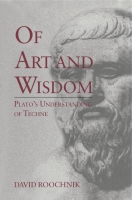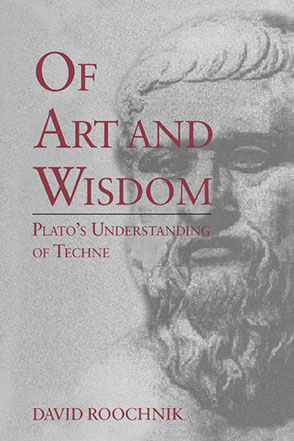Of Art and Wisdom
Plato's Understanding of Techne
David Roochnik
“Roochnik has written the most thorough book yet about the techne analogy as the model for knowledge in Greek thinking. He forces a reconfiguration and rethinking of the entire debate about the place of the techne analogy in Plato's thought. This is an important, provocative book.”
- Description
- Reviews
- Bio
- Subjects
For most commentators, techne functions as a positive, theoretical model through which Plato attempts to articulate the nature of moral knowledge. Scholars such as Terence Irwin and Martha Nussbaum argue that Plato’s version of moral knowledge is structurally similar to techne. In arguing thus, they attribute to Plato what Nietzsche called "theoretical optimism," the view that technical knowledge can become an efficient panacea for the dilemmas and painful contingencies of human life. Conventional wisdom has it, in short, that for Plato technical, moral knowledge can solve life's problems.
By systematically analyzing Socrates’ analogical arguments, Roochnik shows the weakness of the conventional view. The basic pattern of these arguments is this: if moral knowledge is analogous to techne, then insurmountable difficulties arise, and moral knowledge becomes impossible. Since moral knowledge is not impossible, it cannot be analogous to techne. In other words, the purpose of Socrates' analogical arguments is to reveal the limitations of techne as a model for the wisdom Socrates so ardently seeks. For all the reasons Plato is so careful to present in his dialogues, wisdom cannot be rendered technical; it cannot become techne. Thus, Roochnik concludes, Plato wrote dialogues instead of technical treatises, as they are the appropriate vehicle for his expression of nontechnical wisdom.
“Roochnik has written the most thorough book yet about the techne analogy as the model for knowledge in Greek thinking. He forces a reconfiguration and rethinking of the entire debate about the place of the techne analogy in Plato's thought. This is an important, provocative book.”
David Roochnik is Associate Professor of Philosophy at Boston University. He is the author of The Tragedy of Reason: Toward a Platonic Conception of Logos (1991).
Mailing List
Subscribe to our mailing list and be notified about new titles, journals and catalogs.




